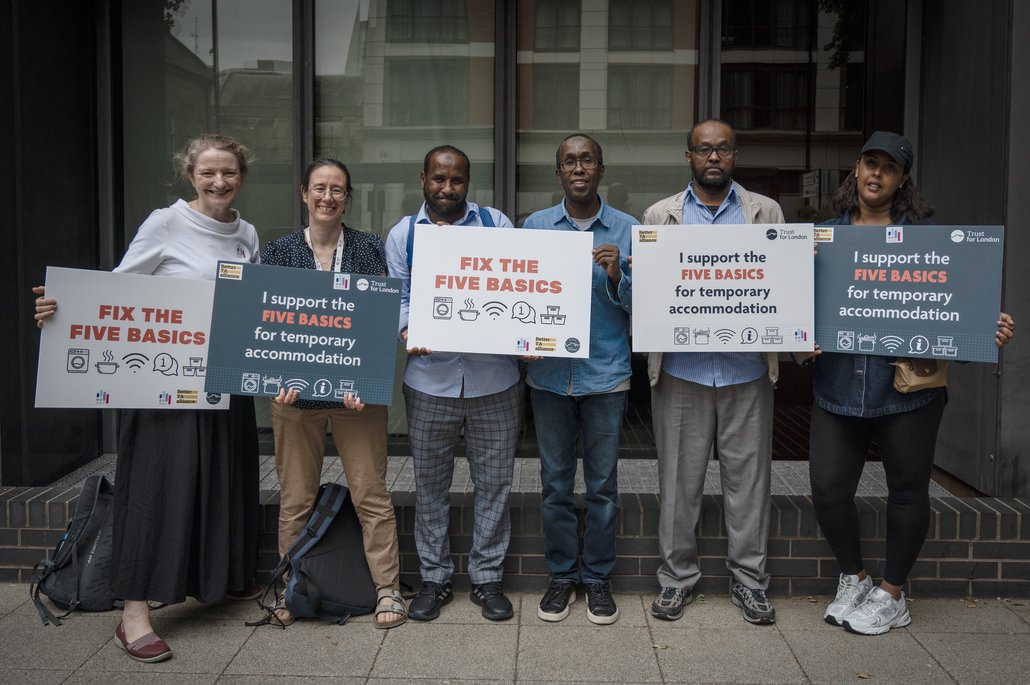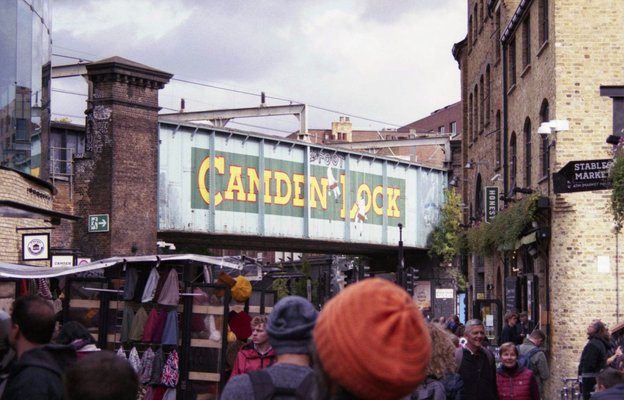
Thousands of families are trapped in poor quality temporary accommodation. Here’s how local collaboration can help - and in many cases already is.
Working to tackle London’s housing crisis can feel depressing. Every time we publish new data on the temporary accommodation crisis, a new record seems to be broken.
And though the government has committed vital funds to social and affordable housing, the £39bn commitment (up to £11.7 billion for London) falls short of the huge investment needed to provide the social rented homes our society actually needs. It will also take years for this investment to have any impact.
But what about the thousands struggling right now?
Low quality temporary accommodation
One of the most visible aspects of the housing crisis is rough sleeping. In the last 15 years, we’ve seen the number of people sleeping rough in London nearly quadruple.
More people are now becoming aware of a more hidden type of homelessness: temporary accommodation. This is the housing provided, often by local authorities, when someone living in their borough becomes homeless, intended as a short-term stopgap until a permanent home can be found.
But there often aren’t homes available for these people, many of them families with children, to move into permanently. There are very few social rental homes available. And in London’s private rental market, prices are sky-high.
This means that families are often in temporary accommodation for years. Recent research found examples of children spending their entire childhoods living in it.
And the fact is that temporary accommodation is often totally unsuitable for anyone, let alone a child to live in. Some families have no kitchen, no way to prepare fresh food. Many aren’t told where they’ll go next, or how long they’ll be there. Others have nowhere safe to store their belongings, and risk having to start from scratch with every move. And accommodation often doesn’t take into account accessibility needs.
We know that temporary accommodation has huge, and devastating, impacts on people’s health. But all is not hopeless. Local action can – and in some parts of London, already does – improve the situation.
The Five Basics
Earlier this Summer, we helped to launch a new campaign calling for temporary accommodation standards to be raised. Created in partnership with grassroots organisations and people with experience of temporary accommodation, it focuses on five basics – things that we all need in our day-to-day lives.
We call on local authorities to ensure that everyone in temporary accommodation has access to:
- Somewhere to cook - a place to prepare a hot meal
- Washing - a way to wash clothes that is affordable and easy-access
- WiFi - reliable, free internet connection
- Storage - somewhere to safely store personal belongings
- Clear information - updates on rights, repairs and move‑on plans.
It might be shocking to people that in 2025, our neighbours and people in our communities are being housed without these basics – using public money.
But that’s the situation for thousands and thousands of families and children. This isn’t because councils don’t care. But with so many people in TA, for overstretched housing teams, victory often means simply getting a roof over someone’s head.
It’s time for fresh thinking
Local government budgets are stretched. But councils are changemakers, with the power to make a significant difference to the wellbeing of temporary accommodation residents.
Civil society, grassroots organisations and people with experience of TA have a deep understanding of the challenges and ideas for solutions.

Members of the Fix the Five Basics campaign at an action at Ealing Council
When we bring these two groups together, in a way that fosters collaboration, the potential is huge. We can work together to find solutions tailored for each borough.
Not everything has to change at once: even implementing one of the basics can have a big impact.
Councils are already doing this – and it’s making a difference
We’re already seeing some great examples of councils ensuring temporary accommodation residents have access to these five basics:
- Cook: Some boroughs, like Southwark, are avoiding placing families in hotels or BnBs altogether because of their lack of cooking facilities. Others, like Islington, provide families in accommodation without cooking facilities with meals.
- Washing: Several boroughs like Barnet, Greenwich and Wandsworth don’t charge for laundry facilities.
- Connect: Islington and Barking & Dagenham provide free WiFI to residents in council owned temporary accommodation – while Greenwich provide all temporary accommodation residents with free sim cards.
- Store: Barking & Dagenham, Ealing and Lambeth provide free of charge removals and storage assistance for residents who can’t safeguard their own belongings.
- Understand: Councils like Westminster, Waltham Forest and Southwark are working to produce information documents for temporary accommodation residents to better understand their situations.
These are just selection of those our research and partners have told us about. Behind each example are many families, whose lives are better for having access to the basics. Even in the current difficult situation, change is possible.
And it’s time to demand better value for money
London councils already pour an eye-watering £90 million a month into temporary accommodation. This means that private landlords are profiting from public money while families live without the basic amenities to keep life functioning, such as kitchens, washing facilities and a place to keep their belongings.
Poor-quality accommodation makes it even harder for people to move on. It traps families instead of helping them rebuild. So in the long run, it costs more.
We need to stand together and collectively bargain for better value for money.
Now is the time to change
The situation is getting worse. Local elections are in May 2026, and we have an alliance of 19 organisations across 10 London boroughs ready to push for change. These partners have already met with eight Council leaders or Cabinet Members for Housing to ask how their boroughs will implement the basics.
If you’re part of local government or a civil society group and want to get involved, reach out to us.
And if you’re a resident, you can also pledge your support to the campaign on our website here.
It’s time to fix the five basics, showing change is possible, and that, ultimately, it’s possible to fix this crisis when we work together.


